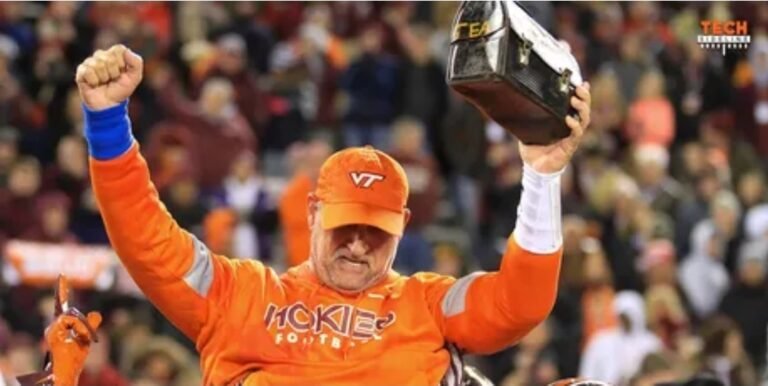Frank Beamer’s tenure as head coach of Virginia Tech football, spanning from 1987 to 2015, was marked by strategic coordinator hires that significantly influenced the program’s success.
One of his most impactful decisions was promoting Bud Foster to defensive coordinator in 1995. Foster, who had been part of Beamer’s staff since 1987, developed the “Lunch Pail Defense,” renowned for its toughness and efficiency. Under his leadership, the Hokies’ defense consistently ranked among the nation’s best, playing a pivotal role in the team’s ascent to national prominence.
In 2011, Beamer made a notable addition to his coaching staff by hiring his son, Shane Beamer, as associate head coach and running backs coach. Shane brought valuable experience from his previous role as South Carolina’s recruiting coordinator and special teams coach. His recruitment acumen and coaching skills contributed to the development of standout players and bolstered the team’s competitive edge.
The 2013 season saw Beamer revamp his offensive coaching staff following a 7-6 record that highlighted offensive inconsistencies. He appointed Scot Loeffler, formerly Auburn’s offensive coordinator, to lead the offense. Loeffler’s task was to rejuvenate the Hokies’ offensive strategies and improve their performance on the field. Alongside Loeffler, Beamer brought in Jeff Grimes from Auburn to coach the offensive line and Aaron Moorehead from Stanford to oversee the wide receivers. These hires aimed to inject fresh perspectives and address the offensive challenges the team faced.
Beamer’s approach to assembling his coaching staff was characterized by a blend of loyalty and strategic external hires. He often promoted from within, recognizing and nurturing talent among his existing staff, as evidenced by Foster’s elevation to defensive coordinator. Simultaneously, he wasn’t hesitant to seek external expertise when necessary, bringing in coaches like Loeffler, Grimes, and Moorehead to revitalize the team’s performance.
These coordinator hires under Beamer’s leadership were instrumental in shaping Virginia Tech’s football identity. The combination of a staunch defense and a dynamic offense led to multiple conference championships and a sustained period of national relevance. Beamer’s legacy is not only defined by the victories on the field but also by his strategic decisions in assembling a coaching staff that embodied his vision for the program.
In recent developments, Virginia Tech has continued to build upon Beamer’s foundation. The program announced the hiring of Sam Siefkes as the new defensive coordinator. Siefkes, who previously served as a linebackers coach in the NFL, brings a fresh perspective to the Hokies’ defense. His appointment has elicited mixed reactions from fans, with some expressing concerns about his relative inexperience at the Power Four level, while others are optimistic about the innovative approaches he may introduce. This move reflects the program’s ongoing commitment to evolving and adapting in the competitive landscape of college football.
Reflecting on Beamer’s history of coordinator hires provides valuable insights into the strategic decisions that have shaped Virginia Tech football. His ability to identify coaching talent, whether by promoting from within or bringing in external expertise, was crucial in building a program that achieved sustained success and left a lasting legacy in college football.



